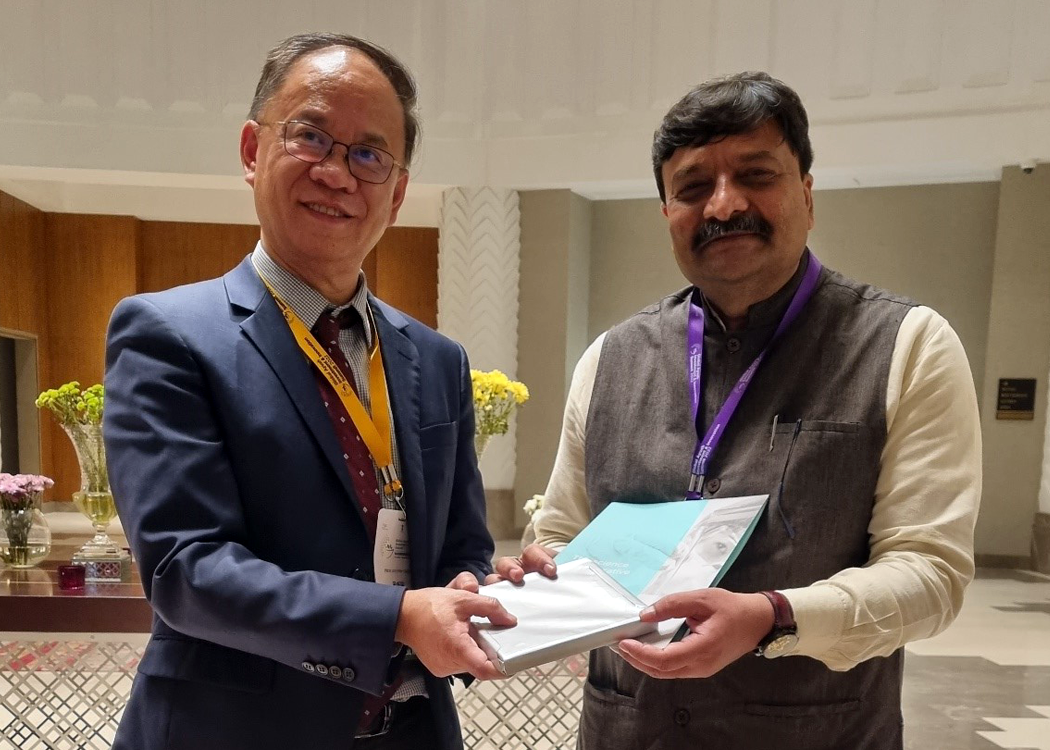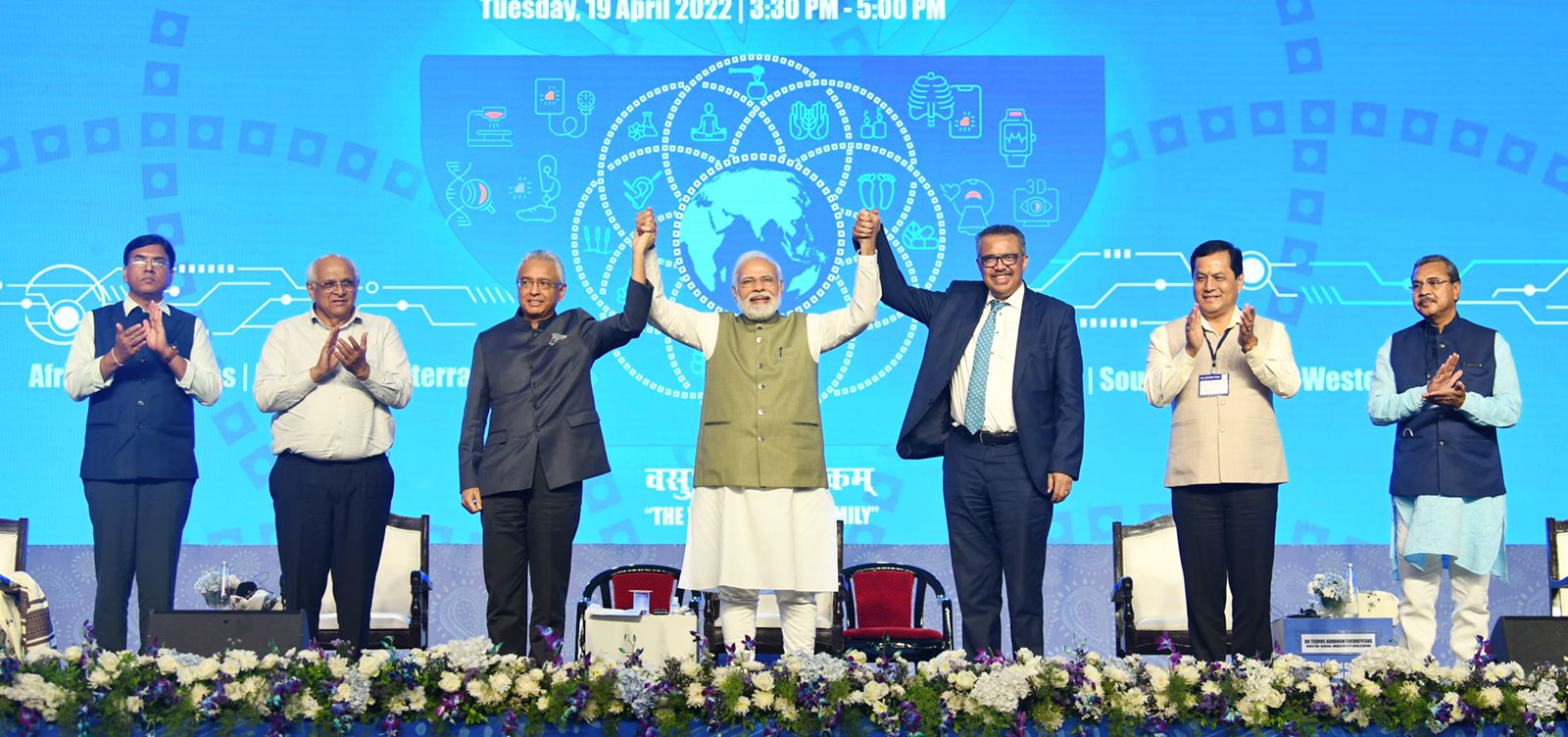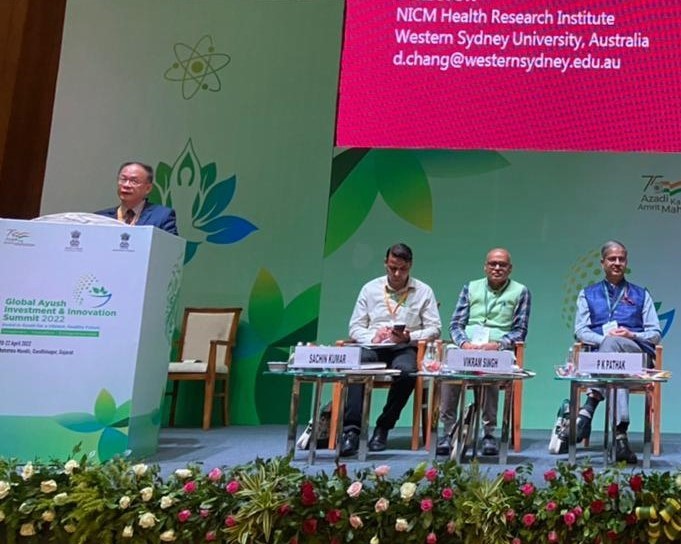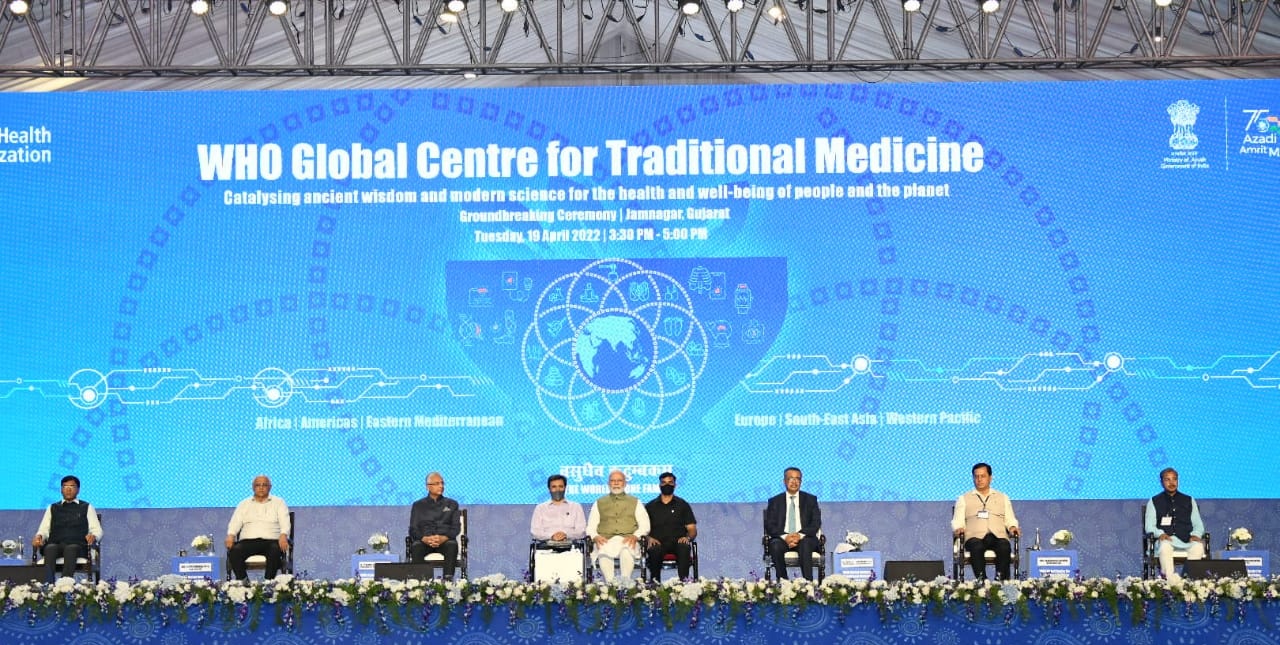India and WHO partnership puts traditional medicine on the world stage
Image: Indian Prime Minister Narendra Modi, WHO Director-General, Dr Tedros Adhanom Ghebreyesus, and Mauritius’ Prime Minister, Pravind Kumar Jugnauth lay the foundational stone for the new WHO GCTM in Jamnagar, the western Indian state of Gujarat. Image credit // @sarbanandsonwal (opens in a new window)
30 April 2022
NICM Health Research Institute and the traditional and complementary medicine community around the world has welcomed the establishment of the World Health Organization Global Centre for Traditional Medicine (WHO GCTM), (opens in a new window) the world's first of its type.
As lead investor in the WHO GCTM, the Government of India has committed an estimated US$250 million to support the Centre’s establishment, infrastructure, and operations. This includes 35 acres of land in Jamnagar, Gujarat, India, for a new facility in 2024, and support for the WHO GCTM operational costs with a 10-year commitment.
While the new Centre is being built, an interim office will be established at the Institute of Teaching and Research in Ayurveda (ITRA), which is a WHO Collaborating Centre and Institute of National Importance.
Attending the ground-breaking ceremony held in Jamnagar, Gujarat, India (opens in a new window) on 19 April, and presenting as a plenary speaker at the Global Ayush Investment and Innovation Summit, (opens in a new window) NICM Health Research Institute Director, Professor Dennis Chang commended the visionary leadership and commitment by India and WHO, echoing Prime Minister Narendra Modi’s remarks of the centre ushering in a new era of traditional medicine globally and enhancing wellness in society.
“The WHO GCTM is a significant development for traditional medicine and the initiative will help create a global ecosystem to promote scientific research, innovation and further investment for traditional medicine,” said Professor Chang.
“While based in India, part of the centre’s purpose is to serve as a hub to engage and benefit all regions of the world - we look forward to future collaborations and research initiatives, particularly within Ayurveda and how to advance access to knowledge, research, and training in traditional medicine globally.”

Image L to R: NICM Health Research Institute Director, Professor Dennis Chang with Professor Anup Thakar, Director, Institute of Teaching and Research in Ayurveda, who will house the interim office for the WHO GCTM.
WHO stated in their press release (opens in a new window) that the new centre will focus on four main strategic areas: evidence and learning; data and analytics; sustainability and equity; and innovation and technology to optimise the contribution of traditional medicine to global health and sustainable development. The centre will concentrate on building a solid evidence base for policies and standards on traditional medicine practices and products and help countries integrate it as appropriate into their health systems and regulate its quality and safety for optimal and sustainable impact.
The foundational stone was laid for the WHO GCTM at the ceremony (opens in a new window) by Prime Minister Narendra Modi, WHO Director-General, Dr Tedros Adhanom Ghebreyesus, and Mauritius’ Prime Minister, Pravind Kumar Jugnauth, and coincided with the three-day Global Ayush Investment and Innovation Summit.

Prime Minister Modi also announced further new initiatives at the summit (opens in a new window) and spoke about the growth of the Ayush sector from in 2014 being less than $3 billion to today a $18 billion sector.
WHO Director-General, Dr Tedros Adhanom Ghebreyesus discussed at the summit (opens in a new window) the new collaboration between the WHO and Ayush Ministry to establish the new centre and how it has sparked an engine for innovation and will drive the agenda for evidence data and sustainability in traditional medicine.

Image: NICM Health Research Institute Director, Professor Dennis Chang presenting at the Global Ayush Investment and Innovation Summit 2022.

